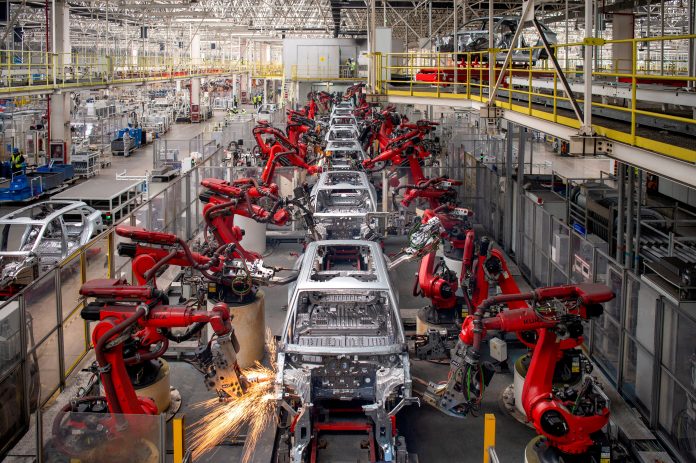Chinese experts sharply criticised US efforts to engage G7 members in forming a protectionist coalition targeting emerging Chinese industries – Global Times.
Earlier on Thursday, US Treasury Secretary Janet Yellen said that she wants market-driven countries to present a unified opposition to China’s industrial policies. The issue was also on the agenda when G7 finance ministers and central bank governors met in Italy on Friday and Saturday.
In a visit to Frankfurt, Germany, Yellen emphasised the need for the US and Europe to work together to address the issue in a strategic and unified way to keep producers on both sides of the Atlantic viable.
We need to stand together and send a unified message to China.
Despite the Treasury Secretary’s calls, experts argue that the US is unlikely to meet its targets as it is not in the interests of some G7 member states, which have stronger trade links with China’s electric vehicle sector and global green transformation processes. Gao Lingyun, an expert at the Chinese Academy of Social Sciences, said Europe pays the most attention to climate and environmental issues, and its entire industrial chain of new energy production is closely intertwined with China.
Other G7 member states will prioritise their own interests and strengthen cooperation with China rather than aligning with the US agenda. China exports few electric vehicles to the US but has a stronger presence in the European market through joint ventures. US tactics may have a limited impact on itself but a larger impact on Europe, Gao said.
Joining the US in suppressing Chinese electric vehicles would harm the consumer interests of some G7 members, such as Germany and France, where there is close co-operation with China on electric vehicle components, batteries and charging stations.
The scenario may lead to higher prices for electric vehicles in their domestic markets, possibly driving consumers back to traditional petrol cars and hindering efforts to reduce emissions.
China exported around 1.2 million new energy vehicles in 2023, with Europe accounting for 38 per cent of total exports, demonstrating the unique position of Chinese electric vehicles in the European market.
Refusing “overcapacity” narrative
The tariff hike has been criticised by a number of companies and has the potential to have a significant impact on the global green industry. For example, Tesla CEO Elon Musk told technology investors in Paris on Thursday that he opposes US tariffs on Chinese electric vehicles (EVs), according to Reuters.
He said: “Neither Tesla nor I asked for these tariffs, in fact I was surprised when they were announced. Things that inhibit freedom of exchange or distort the market are not good. (…) Tesla competes quite well in the market in China with no tariffs and no deferential support. I’m in favour of no tariffs.”
The new Tesla Shanghai Megapack energy storage plant – another major Tesla investment in China after the Shanghai Gigafactory opens in 2019 – was broken ground on Thursday. Musk’s stance reflects the views of the entire industry and makes it clear that tariffs hurt both sides.
Apart from Tesla, German automakers BMW Group and Volkswagen announced in April that it plans to invest another 20 billion yuan ($3.12 billion) in its Shenyang production base and 2.5 billion euros in its innovation centre in Hefei, respectively. The company continues to increase the pace of innovation in China, its key market.
China’s foreign ministry spokesman, Wang Yi, on Tuesday criticised the US effort to use “overcapacity” as an excuse to induce G7 members to create barriers to Chinese new energy products. He said:
This could mean building a coalition for protectionism that is completely against the trend of the times, which calls for openness and mutual benefit. It will not only hurt the consumers in those countries but also impede the global green transition.
Wang added that China is willing to work with all countries to deepen co-operation in new energy industrial and supply chains, and to promote technological innovation and industrial development. The US strategy of seeking allies to suppress China only shows its inefficiency in developing new energy, which will ultimately hinder global efforts to tackle climate change, Gao said.
